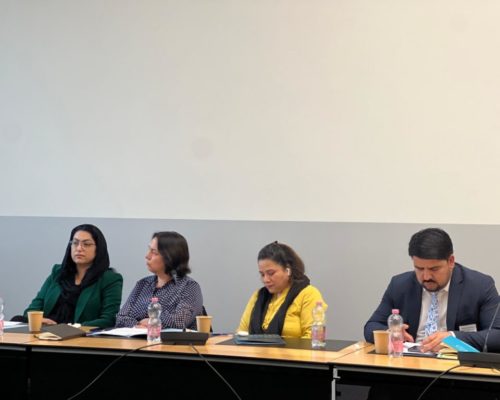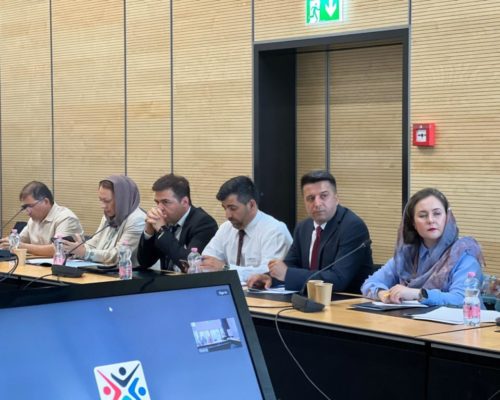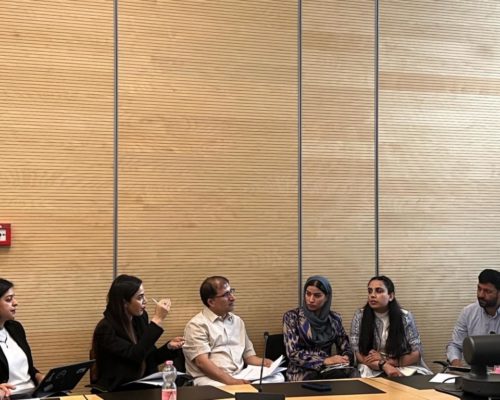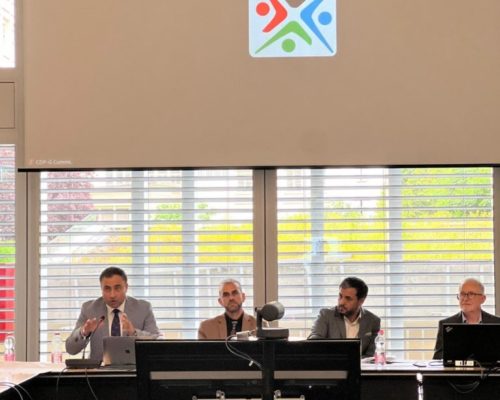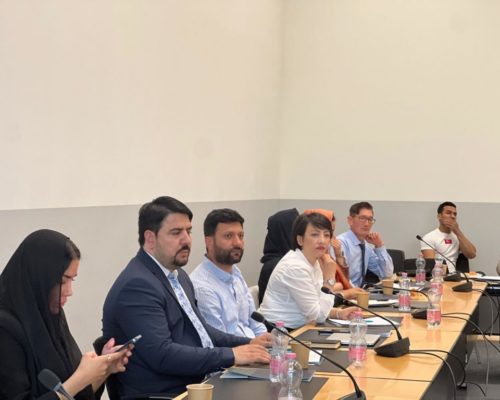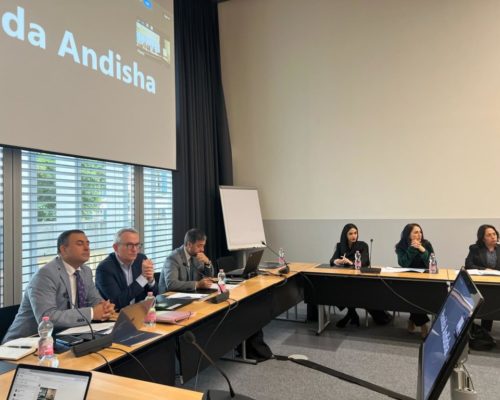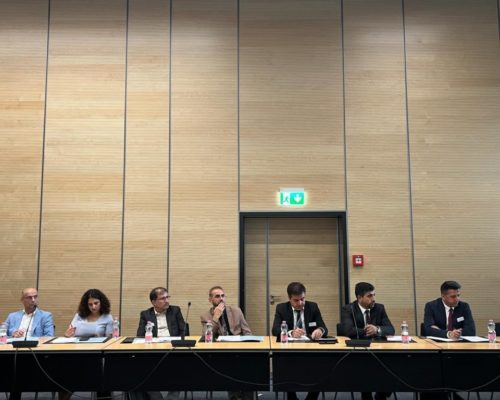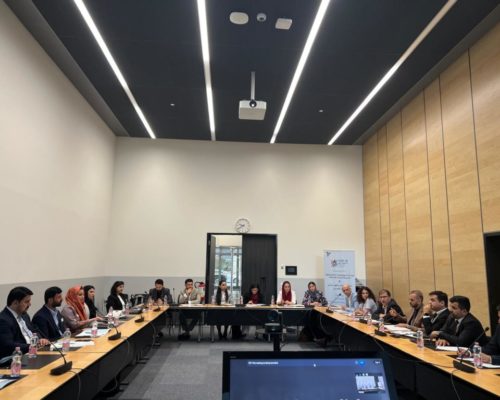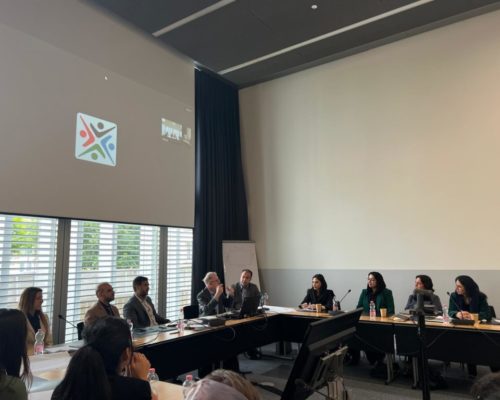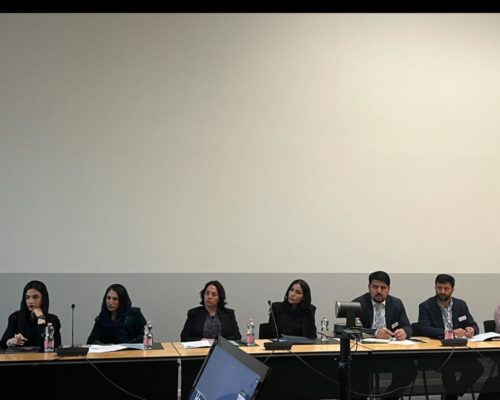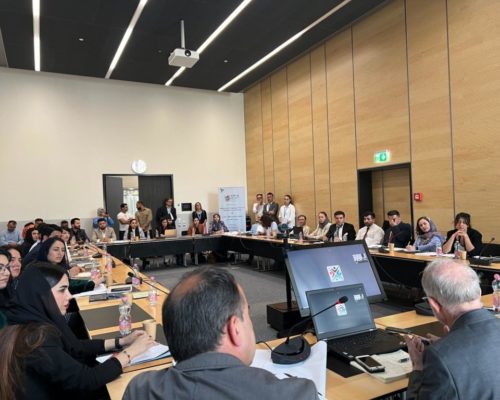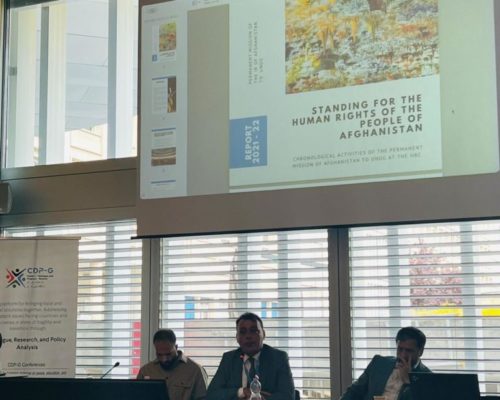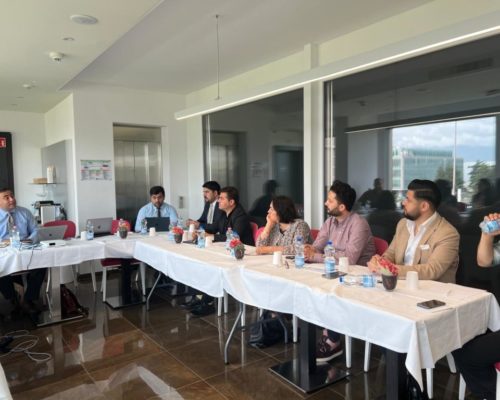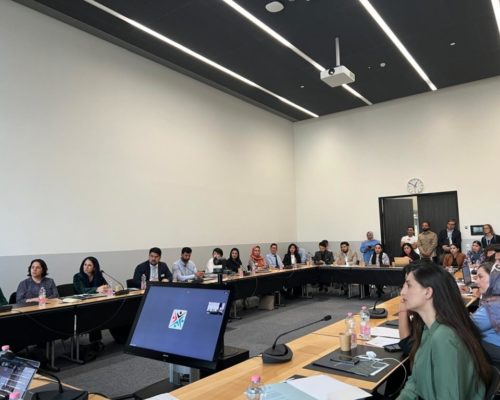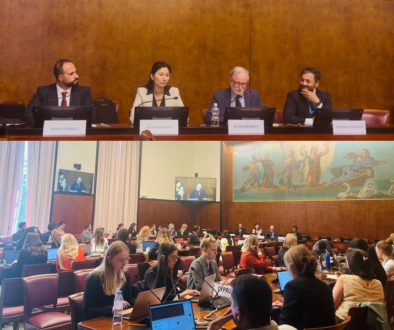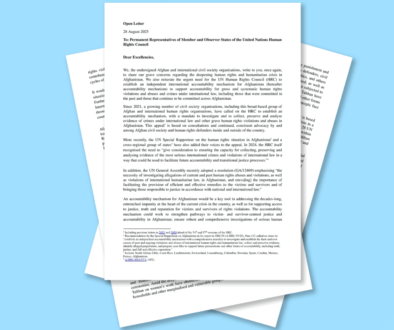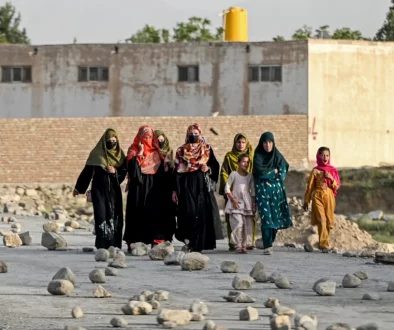Meeting of Afghanistan Civil Society Organizations Network
This report summarizes the discussions from the “Meeting of the Afghanistan Civil Society Organizations Network” held on June 20 and 21 in Geneva, Switzerland.
Since its inception in October 2022, the Afghanistan Civil Society Network has been actively organizing and discussing various aspects of the Network. A significant milestone was reached in November 2023 when an agreement was reached on a governance structure, leading to the establishment of a leadership committee and a temporary secretariat for the Network. The Center for Dialogue and Progress-Geneva (CDP-G), as a member of the leadership council and the secretariat, has played a pivotal role in facilitating the interactions among the Network members. Their continued efforts in organizing future meetings and interactions of the Network are commendable.
In one of the sessions of the Antalya Conference in March 2024, the members of the Network and several civil society experts discussed the structure and the future of the Network. Due to the increase in the number of Network members, it was suggested that the structure of the Network be reviewed again, and the new members of the Network also get the opportunity to provide their feedback on the governance and introduce candidates for the executive structure of the Network. Based on this discussion, CDP-G organized an online interaction with the Network on 17 May 2024 to consult with the Network members on the agenda for the next meeting of the Network during the month of June 2024. The Network members proposed the inclusion of items on the governance of the Network, strategy, and work plan of the Network, as well as discussions on key opportunities and challenges that the civil society organizations are facing as part of the agenda of the next in-person meeting.
The second in-person meeting of the Network took place on 20 and 21 of June 2024 in Geneva International Conferences Center. All 43 members of the network, including those operating inside Afghanistan, were invited; however, a few members were not able to join due to difficulties related to visas or personal emergencies. Some members who were not able to join the meeting in person took part in the discussions virtually through Zoom. This workshop aimed to address three main issues:
- The geographical dispersion of civil society organizations, coordination difficulties,
- Identity and governance issues, and
- How can dialogue for change among members of civil society be fostered?
The network’s overall aim is to strengthen its structure and engage in collective advocacy efforts, establishing a credible platform for coordinating civil and political actors.
The opening session of the workshop included speeches from the President of the Board of CDP-G, who emphasized the importance of coordination and expansion of the Network, and Amb. George Marc, former Swiss Ambassador to Afghanistan and a member of the Board of CDP-G, highlighted collaboration as the main need of Afghanistan’s civil society to overcome the challenges posed by the current restrictions.
After the introduction of members of the Network, Dr. Nasir Ahmad Andisha, senior advisor of CDP-G, gave an overview of the establishment and achievements of the Network. He pointed out the inclusion of young activists as an important consideration in equal, meaningful, and inclusive participation and rebuilding the civil society of Afghanistan. The relevance and capacity development of the Network member associations were particularly emphasized. He also stressed the new path and a roadmap, including negotiations in Doha and the unification of non-Taliban groups and Civil Society.
The first working session of the Network members concentrated on three main questions:
- How can we overcome the geographical dispersion of the CSOs and increase harmony?
- How do you create an identity for the Network and take positions?
- How can we be relevant and influence the current and upcoming processes in the future of Afghanistan?
All present members and those who joined online were divided into three groups for each group to discuss one of the above questions. At the end of the session, group representatives shared their recommendations in the plenary.
Group One Recommendations:
- Clear goals based on the needs and necessities of the people of Afghanistan, both inside and outside the country,
- Specialization of civil society work and establishing connections with those organizations on the ground to expand civil and humanitarian services,
- There is a need to be transformative and connect with NGOs inside Afghanistan,
- Exploring ways of communication using influential internal stakeholders in the religious scholars,
- Greater cohesion among civil society forces within the region surrounding, learning from successful post-war models,
- Create internet networks and hold online meetings to follow up on decisions and delegate tasks,
- Connecting with institutions engaged in education, health, environment, and humanitarian services,
- Meeting locations are important for gathering more forces and being influential lobbyists and key players,
Group Two Recommendations:
The group explored establishing a distinct identity for the civil society network and its strategic position. Key actions recommended and the participants agreed upon are the following:
- Selecting a name that reflects the network’s mission and vision.
- Ensuring the network’s effectiveness and prominence through unified actions.
- Presenting a unified voice and focusing on capacity building for members.
- Introducing and promoting network members to raise their profiles and foster mutual support.
- Establishing a clear framework for connections among members with well-defined vision and goals.
- Setting priorities and outlining specific time frames for activities.
- Delegating certain tasks to CDP-G to leverage shared resources effectively.
- Forming a specific group to prepare bylaws for the network.
Group Three Recommendations:
How to be relevant and influence the processes in the future of Afghanistan?
- It is required to create an umbrella for all those organizations, inside and outside the country, that pursue common goals,
- Create alliances among the civil society organizations based on the subject matters, i.e., human rights, education, peace, governance, etc., and let each alliance create its own goals and objectives,
- Coordinated advocacy should be a key feature of the work of civil society organizations outside the country,
- Build the capacity of the civil society organizations and particularly extend support to those civil society organizations that still function inside the country,
- Civil society should have one voice and not differentiate between the organizations and activists from inside and outside Afghanistan,
- Create narratives and positions to challenge the current dictatorship in Afghanistan,
- Learn from the lessons of the past and build new initiatives based on those lessons,
- Open dialogue and build consensus on key issues and respect all views,
- Provide safeguarding to members, particularly for those who operate in Afghanistan.
Briefings and Networking Activities
The meeting of the Network was organized to overlap with the 56th regular session of the UN Human Rights Council. To ensure the Network members receive the most up-to-date information on the human rights situation, Mr. Mohibullah Taib, consular at the Permanent Mission of Afghanistan in Geneva, was invited to give a presentation on the Afghanistan Universal Periodic Review report and the requirement to prepare the next report of Afghanistan on the implementation of the Convention on Elimination of all forms of Discrimination against Women (CEDAW).
Mr. Taib explained that the Permanent Mission in Geneva successfully organized a delegation consisting of members of the former government, civil society representatives, and human rights activists from Afghanistan to prepare and present the Universal Periodic Review (UPR) of Afghanistan to the UN Human Rights Council. He also added that subsequently, the Permanent Mission of Afghanistan is asked to prepare and submit the next periodic report of Afghanistan on the implementation of CEDAW. Mr. Taib asked for the support of the Network members in the preparation and presentation of the report.
Richard Bennett, the UN Special Rapporteur on the Situation of Human Rights in Afghanistan, and his team also attended the Network meeting. A number of non-governmental organizations and activists who work closely on the situation in Afghanistan also attended the lunch meeting, which was planned as a networking opportunity. Mr. Bennett, who presented his recent report on the situation of human rights in Afghanistan to the Human Rights Council, briefly presented his report findings to the Network members and also provided feedback on gender apartheid and other cases of human rights violations.
Members of the Network had a fruitful interaction with him, during which various aspects of the human rights situation in Afghanistan were discussed. Members of the Network shared their questions with the Special Rapporteur and offered their support to the work of the Special Rapporteur. In his remarks, Mr. Bennett stated that the work of civil society is extremely important for advocating for human rights in Afghanistan. Mr. Bennett and members of the Network continued the discussion over lunch.
The afternoon sessions started with a discussion on the governance of the Network. The Network members discussed on the need for a revision of the governance of the Network and how changes should be addressed. Members of the network agreed to create working groups to study the governance structure of the network further. They provided feedback on the overall structure and the network’s future action plans. It was decided that a smaller group of network members should work on establishing a working group to study the governance and strategy of the network.
The final session of the first day of the workshop focused on possible scenarios for civil society in Afghanistan and conducted research on the understanding and expanding the definition and functionality of civil society organizations inside and outside Afghanistan under the current situation. Ms. Elham Kohistani, who facilitated the session, presented four possible scenarios for the work of civil society organizations. These scenarios were developed and analyzed in another forum led by the Swedish Folke Bernadotte Academy and the network members provided their feedback on the probability of each scenario two and a half years after the fall of the Republic of Afghanistan.
Members of the Network also discussed how the Network can contribute to defining the civil society of Afghanistan in the post-Republic era. Given the answers to the three main questions that had been discussed in the morning session, the participants provided their feedback and opinions on how research can help the Network align its future activities with the realities on the ground but also how CDP-G can work more closely with the members of the Network and respond to their capacity development and other needs. The Network members decided to appoint a working group to work on the scope and modality of conducting this research. Further discussions on the composition of the working group were deferred to the second day of the workshop.
Day Two: working groups meeting
The second day of the workshop took place, with the presence of a selected number (over 20) of the participants. The objective of this session was to ensure that members of two working groups were identified to work on the network’s governance strategic plan and conduct research on the current state and future of work of the Afghan civil society.
It is worth mentioning that membership in these working groups has been on volunteer basis and those members who were not present in the meeting can show their interest to be part of the working groups by sending an email.
To facilitate the work of these working groups, CDP-G was assigned to create contact groups and provide necessary support to the members to convene and pursue their activities. Working groups will meet with Secretariat members during the month of July to organize their plans and work on the assigned tasks.








